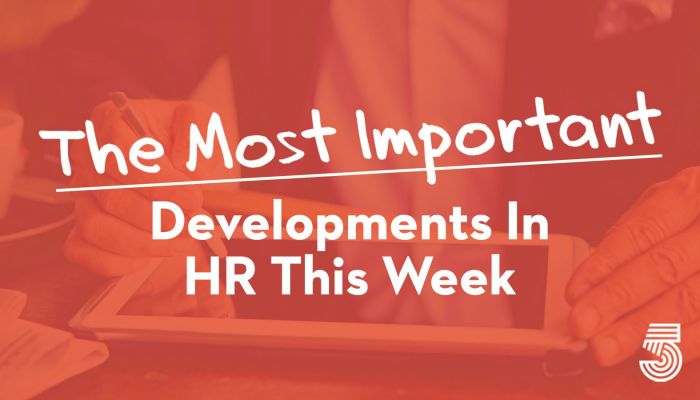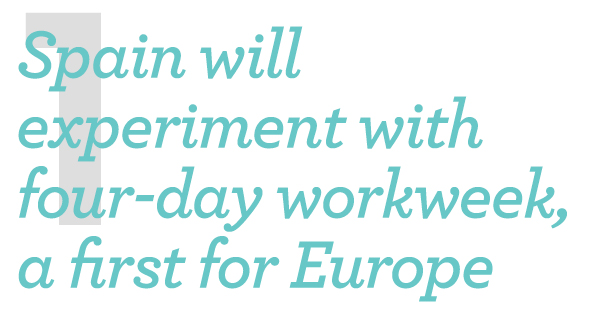
For years, advocates for a four-day workweek have argued that a compressed schedule could lead to more productivity and a better work-life balance — a perspective that has gained credence in some countries amid the coronavirus pandemic, which has wrought drastic changes to the way people work. Spain is about to find out firsthand whether it works. The country is poised to become one of the first to experiment with a 32-hour workweek, which would allow workers to spend less time at the office without any change in pay. According to Spanish media outlets, the pilot program is intended to reduce employers’ risk by having the government make up the difference in salary when workers switch to a four-day schedule. Exactly what the pilot program will look like is unclear: An individual with the industry ministry told the Guardian that nearly every detail was still up for negotiation, including how many companies will be involved and how long the experiment will last. The Washington Post

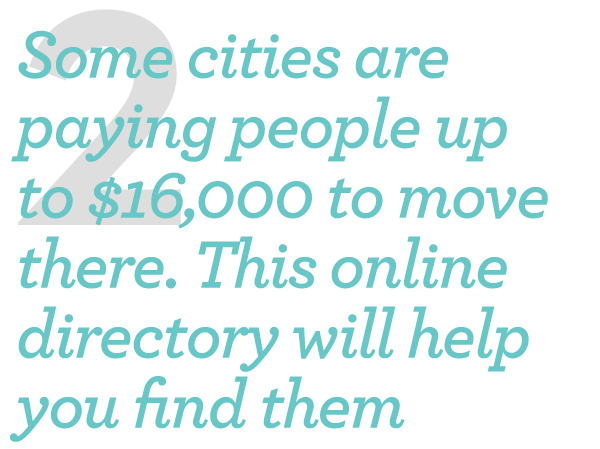
Dozens of cities are offering up to $16,000 in cash incentives, homebuying allowances, tax credits, and money toward local goods and services in hopes of enticing pandemic movers to relocate there. MakeMyMove.com, an online directory launched in December 2020, aims to connect remote workers with such offers around the country. City- and statewide workforce development groups have long incentivized new residents to move there, often by offering tax breaks and loan forgiveness when they buy a home. But with the pandemic spurring a wider acceptance of remote work, plus a greater affinity for physical space beyond dense urban areas, these programs are pushing recruitment into overdrive. Around 8.9 million people already moved between March and October 2020, up by 94,000 people from the year prior, and young professionals are the group most likely to relocate during the pandemic. CNBC
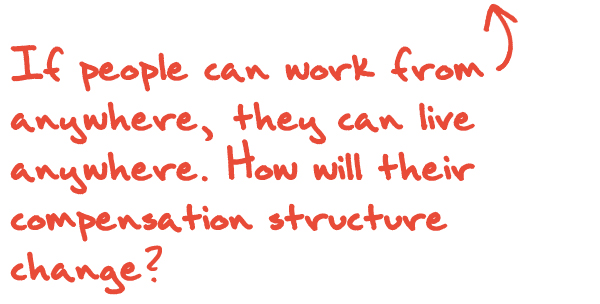
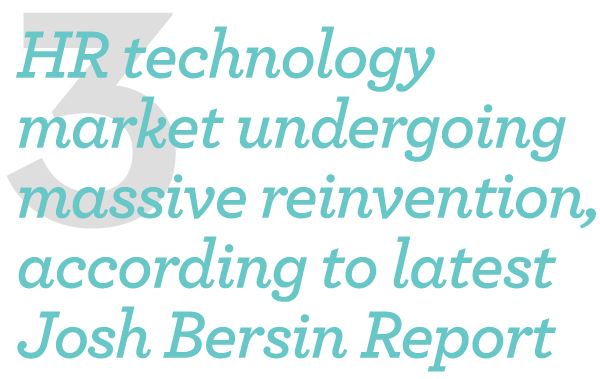
In his latest report, HR Technology 2021: A Definitive Guide, industry analyst Josh Bersin describes the major disruption of the $40 billion-plus HR technology market as companies move from “HR tech” to “work tech” and seek ways to improve employee experiences for all areas of work. “Driven by the pandemic, every company is reinventing the way people work, radically changing technology needs and expectations,” said Bersin. As described in the 96-page report, technology vendors are now focused on delivering productive and personalized employee experiences; adapting to flexible job models and agile organizational structures; and integrating with systems of productivity like Microsoft Teams, Workplace by Facebook, and Slack. “The entire HR technology market is shifting from systems of record to systems of design, which enable HR and IT departments to create flexible, AI-driven, productive experiences for employees in every role,” said Bersin. “The introduction of Microsoft Viva has validated the market for employee experience platforms, forcing every vendor to build tools that focus on employees first, HR second.” PR Newswire
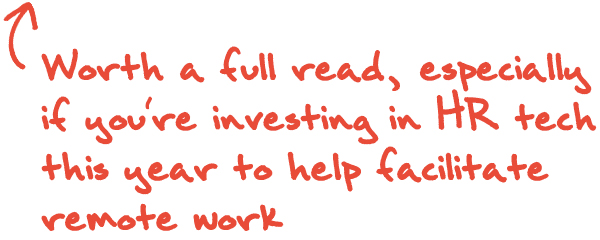
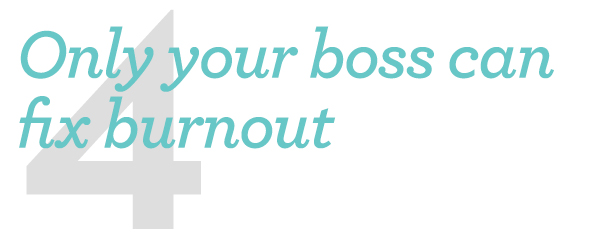
Many people have now spent a year staying inside, avoiding friends and family, abstaining from travel and indoor dining, mourning the loss of hundreds of thousands of people, and maintaining the same pace of work while caring for children round-the-clock and often single-handedly. Even people who have been calmly emailing their way through the apocalypse feel that their limit has been reached and they can go no further. Anyone can feel burned out, even people who might have spent the pandemic relaxing on a COVID-free island with a magically replenishing money supply. The mental pressure of living through a mass-casualty event would be enough to fry the most Zen of brains. But at its core, burnout is a work problem. Though wellness influencers might suggest various life hacks to help push through pandemic torpor, actual burnout experts say that tips and tricks are not the best way to treat the condition. Instead, they say, burnout is a problem created by the workplace, and changes to the workplace are the best way to fix it. The Atlantic
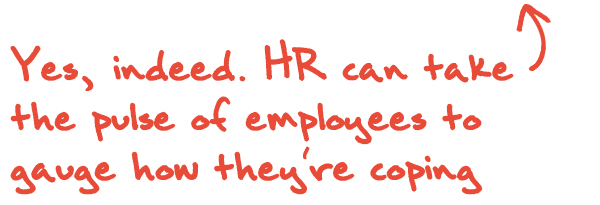
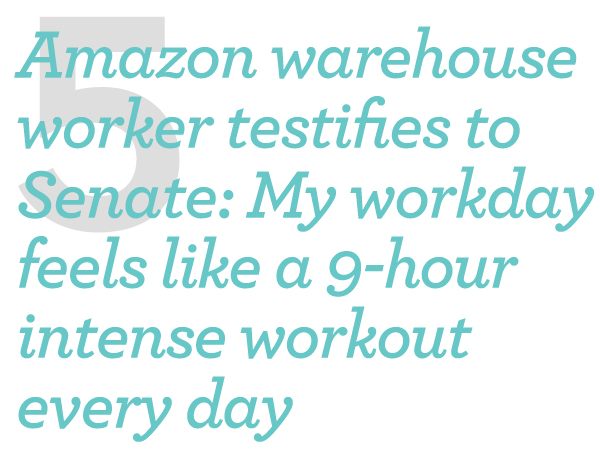
An Amazon warehouse employee testified before the Senate Budget Committee on Wednesday about the “grueling” working conditions that led her and others to organize the milestone union election currently underway in Bessemer, Alabama. “Amazon brags it pays workers above the minimum wage. What they don’t tell you is what those jobs are really like,” said Jennifer Bates in her testimony. “We have to keep up with the pace. My workday feels like a nine-hour intense workout every day. And they track our every move — if your computer isn’t scanning, you get charged with being time-off-task,” said Bates, a learning ambassador who helps train other workers at the facility and who has been a vocal organizer behind the union push. “From the onset, I learned that if I worked too slow or had too much time-off-task I could be disciplined or even fired.” Bates was invited by Sen. Bernie Sanders to speak on the topic of “Income and Wealth Inequality Crisis in America.” In a statement last week, an Amazon spokesperson said, “We fully endorse Senator Sanders’ efforts to reduce income inequality with legislation to increase the federal minimum wage to $15 an hour for all workers, like we did for ours in 2018.” CNN







